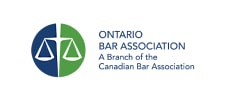If your refugee claim was rejected at the Refugee Protection Division (RPD) of the Immigration and Refugee Board of Canada, you may be able to appeal the decision to the Refugee Appeal Division (RAD). As a refugee claimant in Canada, you are under a conditional removal order. Therefore, if your refugee claim is rejected and you decide not to pursue any appeal or review options, the removal order will come into effect and you must leave Canada immediately. So if you feel like the Refugee Protection Division made a mistake in its decision, then an appeal to the RAD is your best option to remain in Canada.
Important Information about the Refugee Appeal Process
The Refugee Appeal Division allows refugee claimants to get their refugee decision reviewed by a higher tribunal. The RAD is separate and independent from the RPD. When filing your refugee appeal, claimants must show that the RPD made mistakes in its decision about the law, the facts, or both. The RAD can either confirm or change the RPD decision or send the case back to the RPD for redetermination. The RAD can also include instructions or directions for the RPD to consider when it sends the case back for redetermination.
Who Can File a Refugee Appeal?
The RAD has specific restrictions about who can file an appeal. You cannot appeal to the RAD if you are a designated foreign national, your refugee protection claim was withdrawn or abandoned, or the RPD found that your claim has no credible basis or is manifestly unfounded. In addition, you cannot appeal an application made by the Minister to end or vacate your refugee protection/status. Refugee claimants subject to an order of surrender under the Extradition Act are also excluded from appealing to the RAD. In those cases, you may be able to apply for judicial review of the decision at the Federal Court of Canada.
Filing a Refugee Appeal
If you are eligible to file an appeal and decide to appeal to the RAD, you are considered the appellant. If the Government of Canada decides to get involved in your appeal, the Minister is the intervener. There are two steps to appealing your decision to the Refugee Appeal Division–1) filing your notice of appeal and 2) submitting an appellant’s record. The refugee claimant has to first file a notice of appeal to the RAD within 15 days of receiving the written reasons from the RPD. After submitting your notice to appeal, you must submit your appellant’s record no later than 45 days after you received the written reasons. The appellant’s record is a collection of documents that gives the RAD background on your case and outlines what you would like to be reviewed.
The appellants record consists of:
- The RPD’s written decision;
- An official transcript of the RPD hearing;
- Documentary evidence relied on, as well as any evidence the RPD refused to accept;
- A written statement if you are submitting new evidence that was not available or did not exist at the time of your hearing, as well as whether you are asking for an oral hearing to be held and any accommodations you may need;
- Case law that supports your appeal;
- A memorandum detailing the specific mistakes made by the RPD that you want the RAD to review, as well as where to find those mistakes in the written reasons or transcript, and the decision you want the RAD to make. If necessary, you can also include the reasons for requesting an oral hearing or allowing new evidence.
As stated above, the Minister can oppose your appeal. In that case, you will receive a notice of intervention as well as any documentation the Minister is relying on. The Minister may also provide an intervention record similar to your appellant’s record. The Minister can provide its documents any time before the RAD makes a decision on your appeal. However, you have the right to reply to the Minister’s documents and include any documentary evidence that supports your reply, as well as case law and your memorandum detailing your submissions. You will have 15 days to submit your reply to the Minister and the RAD.
RAD Decision Process
Your appeal will be decided by an RAD member. The RAD generally proceeds without a hearing and makes a decision solely based on the documents submitted by the appellant and in some cases, the Minister. This includes the previous RPD decision, transcript of the hearing, documentary evidence, and submissions from the parties.
The RAD will only hold a hearing if the new evidence provided either raises serious issues about credibility, is central to the RPD decision, and would provide a good reason to allow or reject your refugee claim. If the RAD has decided to hold a hearing, you will be sent a notice to appear and will be informed about the issues the RAD will be considering.























